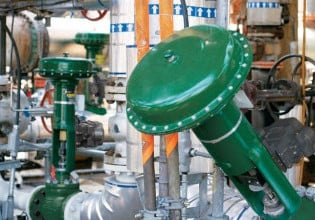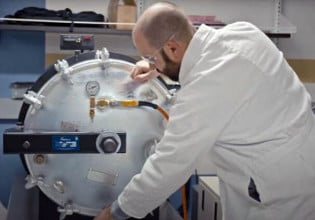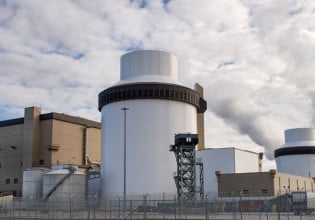A team of researchers from the University of Southern California (Los Angeles, CA), the California Institute of Technology (Pasadena, CA) and Northwestern University (Evanston, IL) have developed a propane-driven fuel cell that is the same size as a lithium battery, but lasts 10 times longer. Propane (the same fuel used in gas barbecues) and other large hydrocarbons are desirable because their larger molecules pack more energy and can be easily stored as liquids rather than as pressurized gases. A small cartridge of liquid propane under moderate pressure could feed a fuel cell for days.
The dime-sized prototype fuel cells were designed to heat themselves up to the 500 °C to 600 °C required to convert propane into electricity. To build a self-heating feature into the design, the researchers coated one of the fuel cell's electrodes with a catalyst (a mixture of ruthenium and cerium dioxide) that enhances the breakdown of propane by oxygen. That reaction releases heat and also produces hydrogen and carbon monoxide, which then undergo electrochemical reactions in the fuel cell. The result is electricity, with carbon dioxide and water as waste products.
In one experiment, the catalytic oxidation of propane in the fuel cell produced enough heat to sustain the fuel cell for 200 hours. In another test, a pair of the fuel cells, wrapped in thermal insulation, produced sufficient power to operate a 1.5 V MP3 player. However, a glitch with the prototype is that to initiate the catalytic reaction, the fuel cell first has to be heated to 300 °C for about a minute inside a furnace. Once the cell reaches that temperature, it generates its own heat. The researchers are searching for a fuel additive that could ignite the reaction at room temperature. The ultimate goal is to create a self-starting fuel mixture, a small percentage of which would be the ignition fuel and the rest of which would be propane.






